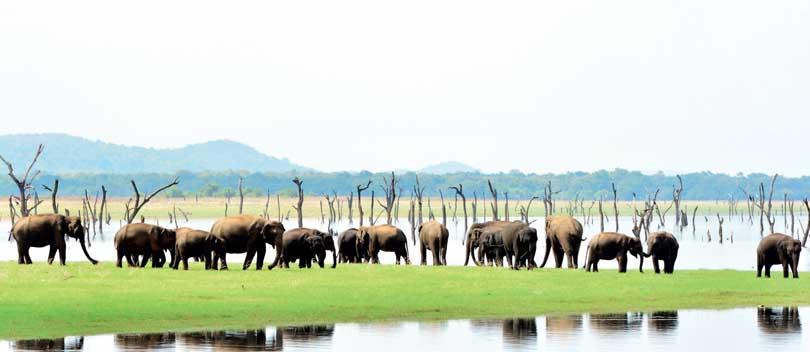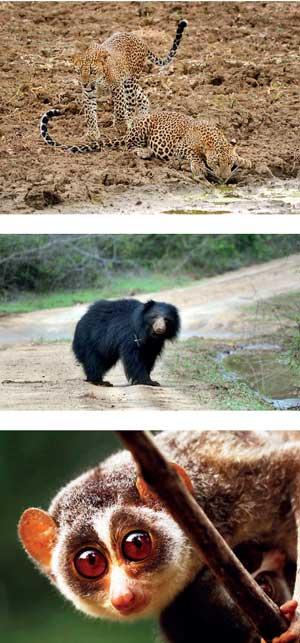09 Sep 2020 - {{hitsCtrl.values.hits}}
Public Lecture Series of the Wildlife & Nature Protection Society
The Department of Wildlife Conservation (DWC)

For over 70 years, the Department of Wildlife Conservation (DWC) has been the statutory guardian of the wildlife and wilderness areas of Sri Lanka. Currently under its jurisdiction are 61 Sanctuaries, three (3) Strict Natural Reserves, one (1) Elephant Corridor, seven (7) Nature Reserves and 26 National Parks, in total covering an area of approximately 14% of the land mass of this island. This constitutes a vast expanse of land, forest, grassland, mangrove and wetland, not an easy task to manage especially as the faunal inhabitants of this wide variety of habitat are no respecters of human demarcated boundaries and wander in and out of these protected areas, on ranges their species have travelled for thousands of years. For the DWC are not only responsible for wild animals within the protected areas, but for any wild animal found anywhere on the island.
For much of the time, this herculean task is managed daily, and goes unnoticed by most, even wildlife lovers, who take these functions for granted. It is, however, when things go wrong that matters come to a head, and even make headlines. That is when a department whose daily routines are largely ignored suddenly comes under the Nation’s spotlight and questions are asked of its management and functions.
The WNPS was responsible for the setting up of the DWC and it only seems right that it gives this voice to its protégé; to hear both the good and the bad. This is a lecture that should attract every genuine wildlife lover who wishes to hear of the experiences of those who work on the ‘other side’, the official side, of the conservation track, and through this understanding, work together with the DWC to protect the last remaining wild creatures and wild places of this country
 In a country where the Civil Service has been largely politicised, and decisions are made on political whim, sometimes with little regard to the Law, championing the cause of wildlife cannot be easy especially when the wild inhabitants the department represents do not have a franchise in the election of Government. Nevertheless the sticks and stones of righteous indignation hurl down on the department when things go wrong, as the sole perpetrators of wrong, with scarce thought to the root causes.
In a country where the Civil Service has been largely politicised, and decisions are made on political whim, sometimes with little regard to the Law, championing the cause of wildlife cannot be easy especially when the wild inhabitants the department represents do not have a franchise in the election of Government. Nevertheless the sticks and stones of righteous indignation hurl down on the department when things go wrong, as the sole perpetrators of wrong, with scarce thought to the root causes.
There is one other function of the DWC, however, that receives scant regard, but is probably its most important. That is the fact that all of the major water catchment areas of the country are protected by the DWC.
Ranjan Marasinghe, Director Operations, Department of Wildlife Conservation is an innovative, result oriented Scientific Service officer with demonstrated success in introducing innovative technologies, process reengineering, planning, monitoring and evaluation, increase earnings, and improving citizen satisfaction. Adept at analysing the challenging environments, conducting research and scientific decision making. Exemplary change agent with the ability to analyse issues, devise continuous process improvements and incorporate business process initiatives to increase efficiency, streamline operations and improved transparency.
It takes confidence and courage to work for the DWC in the field; dealing with wild animals while traversing wild places. It also takes considerable bravery to face an audience of conservationists and wildlife lovers, especially when the usual interaction is when one, the majority, become the others detractor.
The WNPS Lecture is open to all.
Entrance Free.


24 Nov 2024 7 hours ago
24 Nov 2024 24 Nov 2024
24 Nov 2024 24 Nov 2024
24 Nov 2024 24 Nov 2024